Surprised, interested, shocked, concerned and intrigued all sum up our reaction to the massive power cuts across Portugal and Spain, but perhaps the most appropriate description of our mood was: smug.
When the traffic lights went dark, petrol stations closed and panic struck the ice cream shops of the nearby tourist towns on our southwestern coast of Alentejo, we could rest easy.
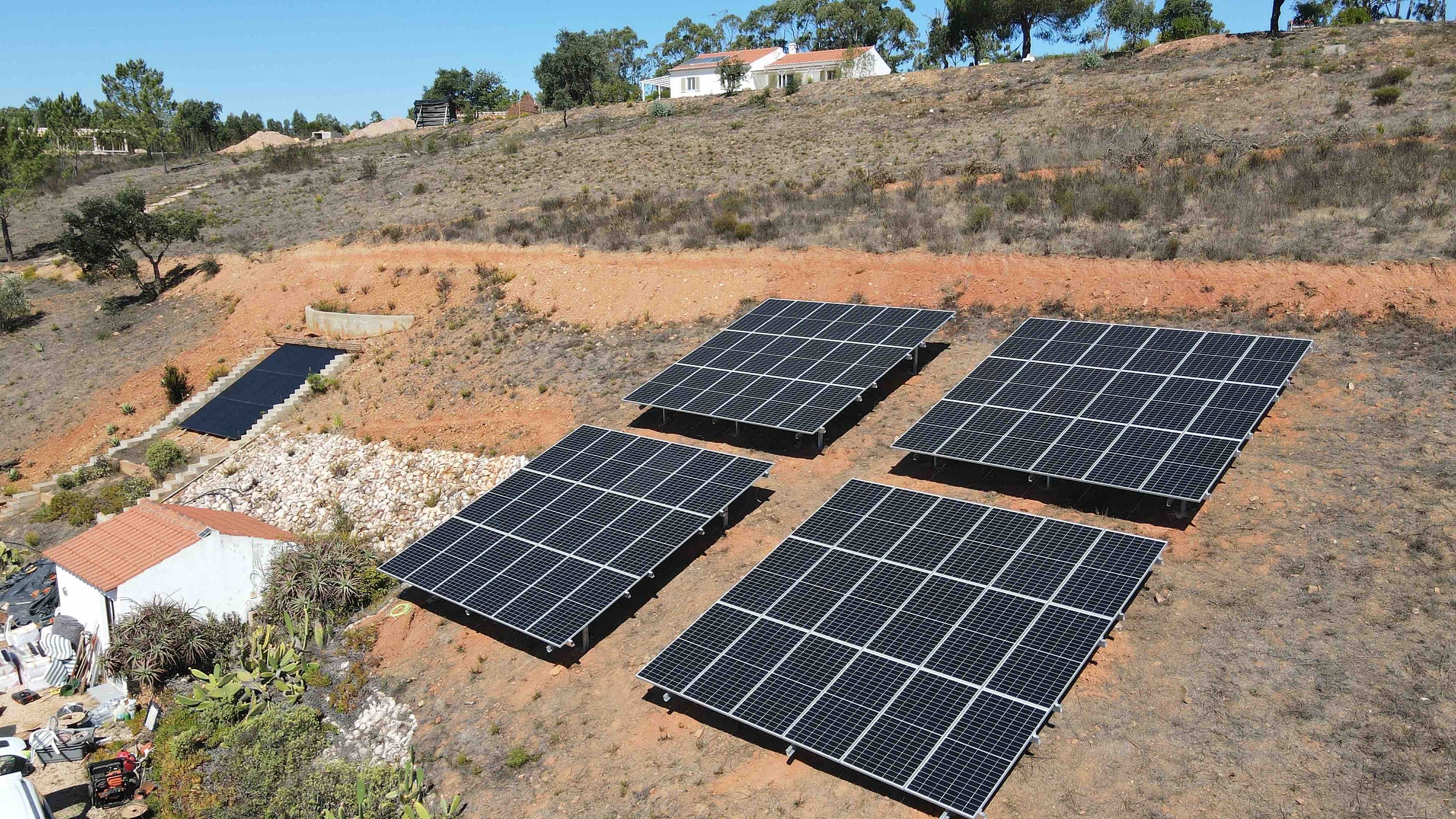
Our freezer-load of wild boar (wild boar) wasn’t defrosting, our water pumps were working well and our wine remained nicely chilled.
While the lights went off across the Iberian peninsula, a healthy hum was heard from our control centre as our 84 solar panels were piling power into our batteries as usual.
We have the storage capacity of a large electric vehicle – a BMW or a Porsche Taycan – and yesterday when the lights went out we felt very much at the luxury end of the market.
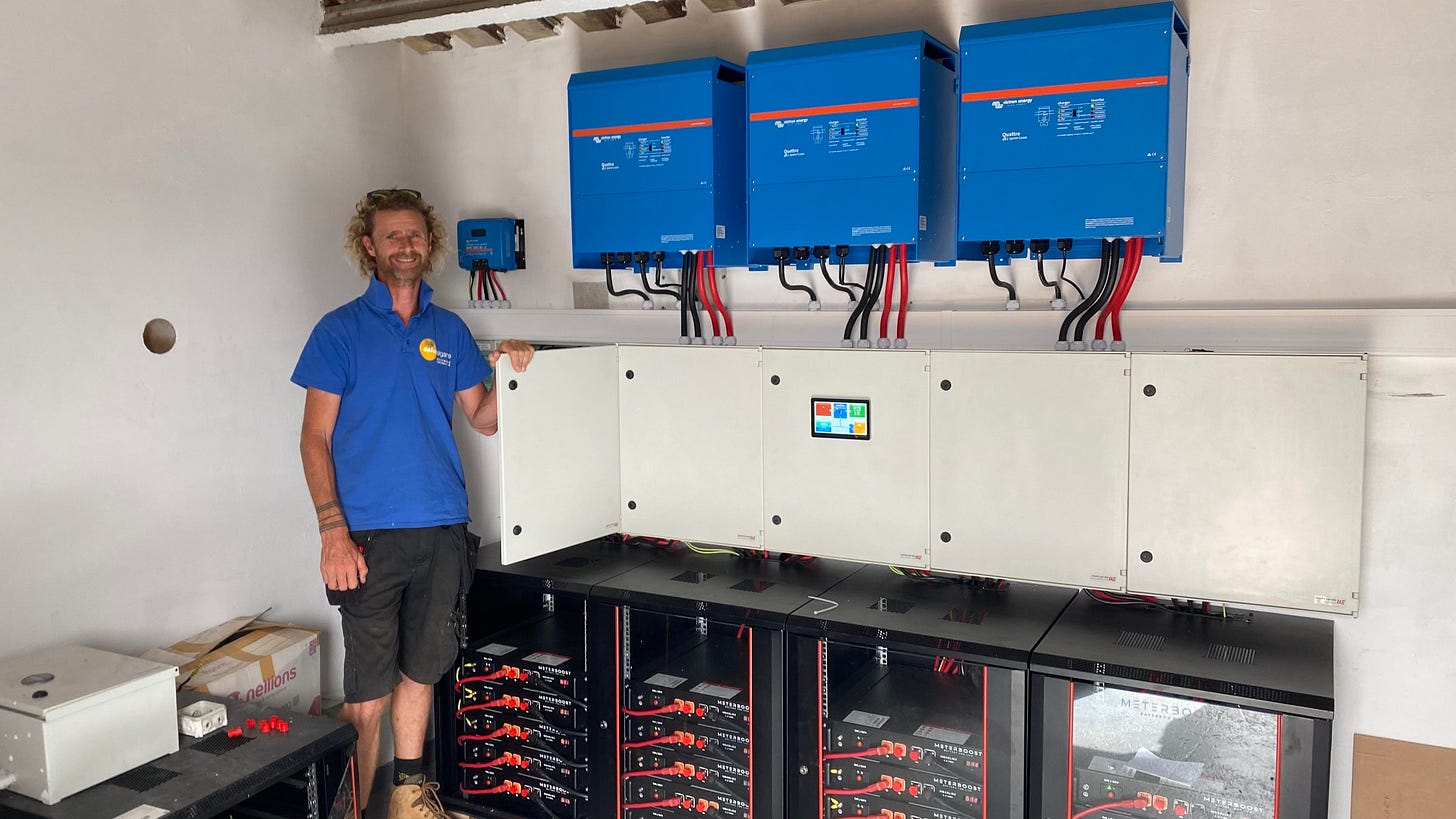
We were buying fruit trees when the plant nursery billing system went down.
People in Vila Nova de Milfontes were standing in shop doors and milling around street corners burning through the last of the mobile phone tower batteries for online information and updates to understand why the “apagão” or power cut, had happened.
There was much speculation at the coffee-less cafés over what, or whom, might have been responsible for the outage.
The explanation as to why the whole of Portugal and Spain lost electricity for many hours has to get a lot better for people to stop thinking it was Mr Putin, Mr Trump or a cabal of satanic paedophiles.
I do tend to lean heavily into cock-up over conspiracy, but I’ll admit my work countering Russian disinformation led my first suspicions towards a Russian cyber-attack.
But we were fine.
After years of learning to live off the grid, the thousands of euros of investment, power cuts and teething troubles, our system finally came into its own.
From the early days when we moved into our new off-grid home in the Portuguese countryside in the middle of the COVID pandemic we’ve been playing catch up with power.
We have learned the hard way what a lot of people realised yesterday – just how much power we consume every day and how dependent we are on electricity
The off-grid system which came with our house provided a lot less energy than we were used to – even moving from Kenya where power cuts were common, but we had a generator in the garden.
Toasters and ovens are the biggest culprits – and I’ll never use my hairdryer while ironing ever again!
After failing to keep the giant Tamagotchi of a lead-acid battery system alive we installed new panels and lithium batteries for us...and then for the 20 plus people we can cater for at the eco-luxe lodge we’ve just opened.
Three phases, hundreds of meters of buried cables, a lot of maths and fuse boxes later and we are...smug.
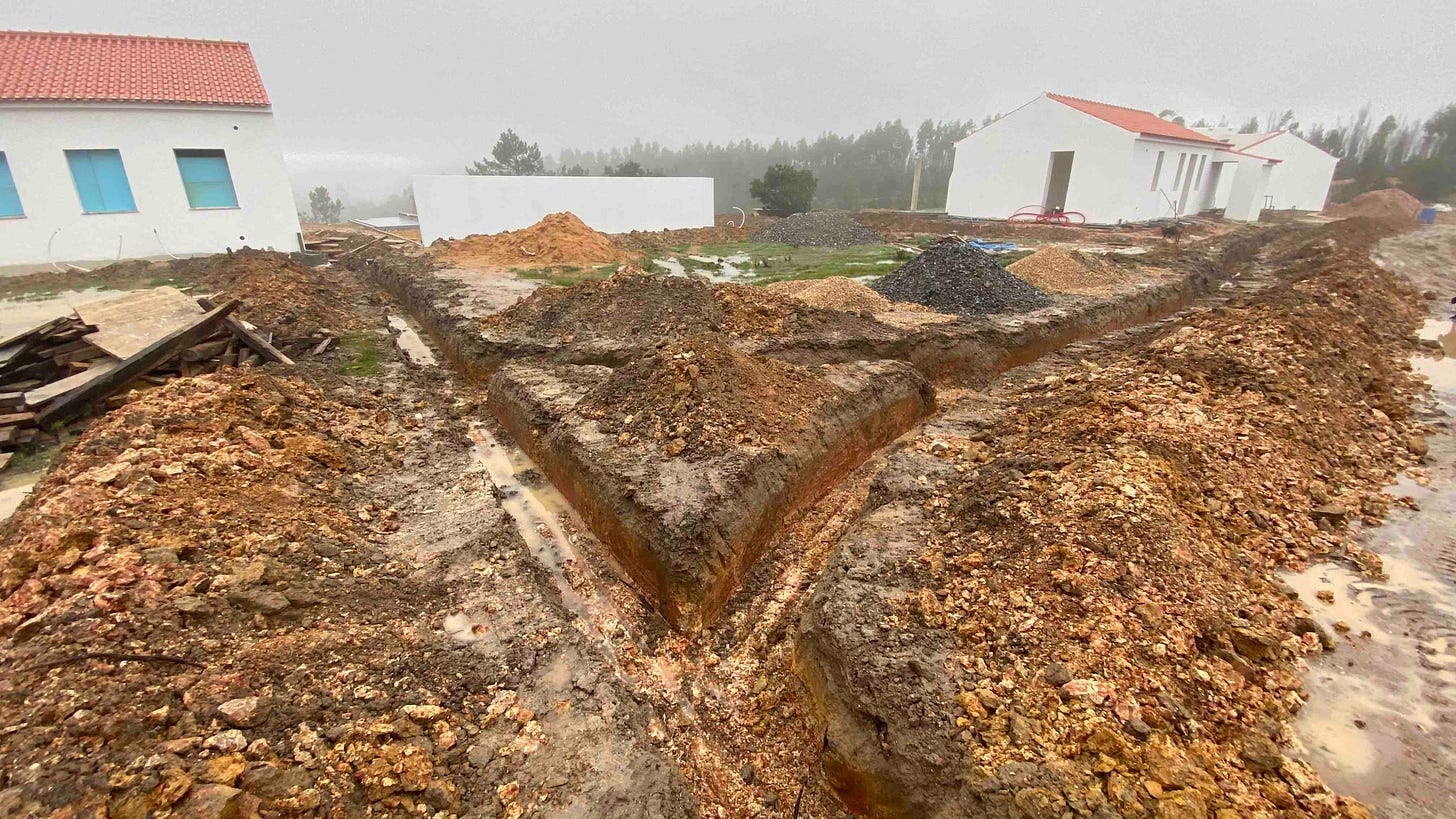
Last week my mornings had begun with a nervous eye on the app, as 17 Easter guests and some pretty rainy and cloudy weather tested the system, which happily passed with flying colours.
But while the rest of the region was powerless to do anything, our batteries were at 100%, our satellite connection kept the communications going and we were one of the few restaurants still open.
We hadn’t planned on making a fish braai for our guests Robert and Kim – and we’re not even a restaurant – but in the absence of a mobile phone signal to even ask the best seafood places if they were open, we confidently offered a three course meal complete with electric light.
The candles were merely for effect.
And the country-wide shortage of internet connectivity led a BBC producer back to my WhatsApp and the offer of a chance to play at my old job for an afternoon.
BBC Radio 4’s PM programme in the UK was interested in “some colour” from Odemira so Ana and I headed off for a wander (hear the story 38 mins in here).
Our local Intermarché supermarket boss was almost as smug as we were – because their massive generator was keeping the meat and fish cold, the freezers below zero and the ATM cash machine running.
There was a touch of the early COVID days about it – even if the toilet roll stocks remained largely undisturbed.
We bumped into our friend Francisco from the A Terra glamping lodge – everything had gone off at his place and so he was at the ATM paying for 20 new solar panels.
“Because tomorrow the price is going to be crazy,” he told me.
“I should have bought them a long time ago, but now it needs to be done.”
Glenn Cullen who with his wife Berny runs a beautiful tourism lodge called Paraiso Escondido was also at the supermarket stocking up on water to help guests flush.
“The power cut’s a bit inconvenient...to say the least,” he told me.
“We rely on pumps for the water, electricity as we’d expect for the power, so cooking – breakfast, lunch, dinners. We do have gas in one of our kitchens, so we have got a standby.
“It’s a bit of a worry and something we have to think about for the future. Already we’re talking about getting generators to have backup. We have solar for hot water, but all the other things we take for granted: every day you turn the tap on, you flick a switch and communication – the WiFi is down. We rely on it so much.”
I do care a lot about ice cream – and was keen to volunteer my services to stop large amounts of it going to waste, so next stop was beach-front Zambujeira-do-Mar and Rita’s Restaurant.
Nuno Rita explained the gelato was straight into the freezer as soon as the lights went out and the door would remain shut until it came back on again.
“It will be fine as long as the power comes back within a day,” he explained, as much to my disappointment I realised my ice cream eating sacrifice was not going to be immediately required.
The Sunset Café was packed – André had his sleeves rolled up and was washing dishes while hikers on the long-distance walking trail Rota Vicentina were fuelling up on lunch.
“Traditional work – no lights, washing glasses with my hands, salads, sandwiches and Portuguese bifanas,” he said, talking about the traditional bread rolls filled with thin pork steaks he was dishing out to walkers.
I’m pleased to say it was a mere 17 hours that our region was without electricity.
Our neighbour Daniel was up before dawn as usual and spotted a distant glow from the nearby town at around 5.15am.
Now is a great time to talk about community micro-grids rather than national grids, and how renewable energy can be better managed at a local level...however much the giant power providers may protest.
Solar panels have never been cheaper, but integrating small systems into national grids are not as easy as the “sell your renewable power back” offers suggest.
Our friend Niels discovered it was costing him money to sell his excess power to the grid and so invested in large water tanks and heaters to create different types of “battery” instead.
And our neighbour Jeff in Lisbon had taken steps towards energy independence by installing panels, but because he is connected to the grid he couldn’t use them when the blackout happened.
While conservative newspapers say the Iberian power cuts prove renewable energy can’t work at scale - because of the huge steps Spain and Portugal has made towards running on green energy - we have to remember that it must.
It’s perhaps more down to the traditional systems and the big, rich power companies which need to change and adapt.
And it’s also a good reminder that come the next zombie apocalypse we should be fine – all we need is a couple of extra shovels to hit them with and maybe a shotgun.

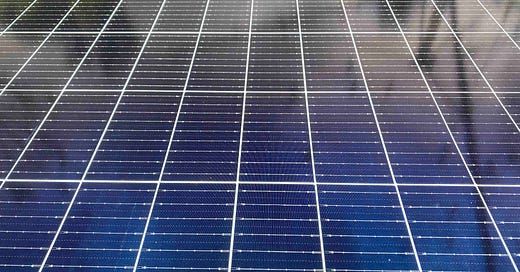


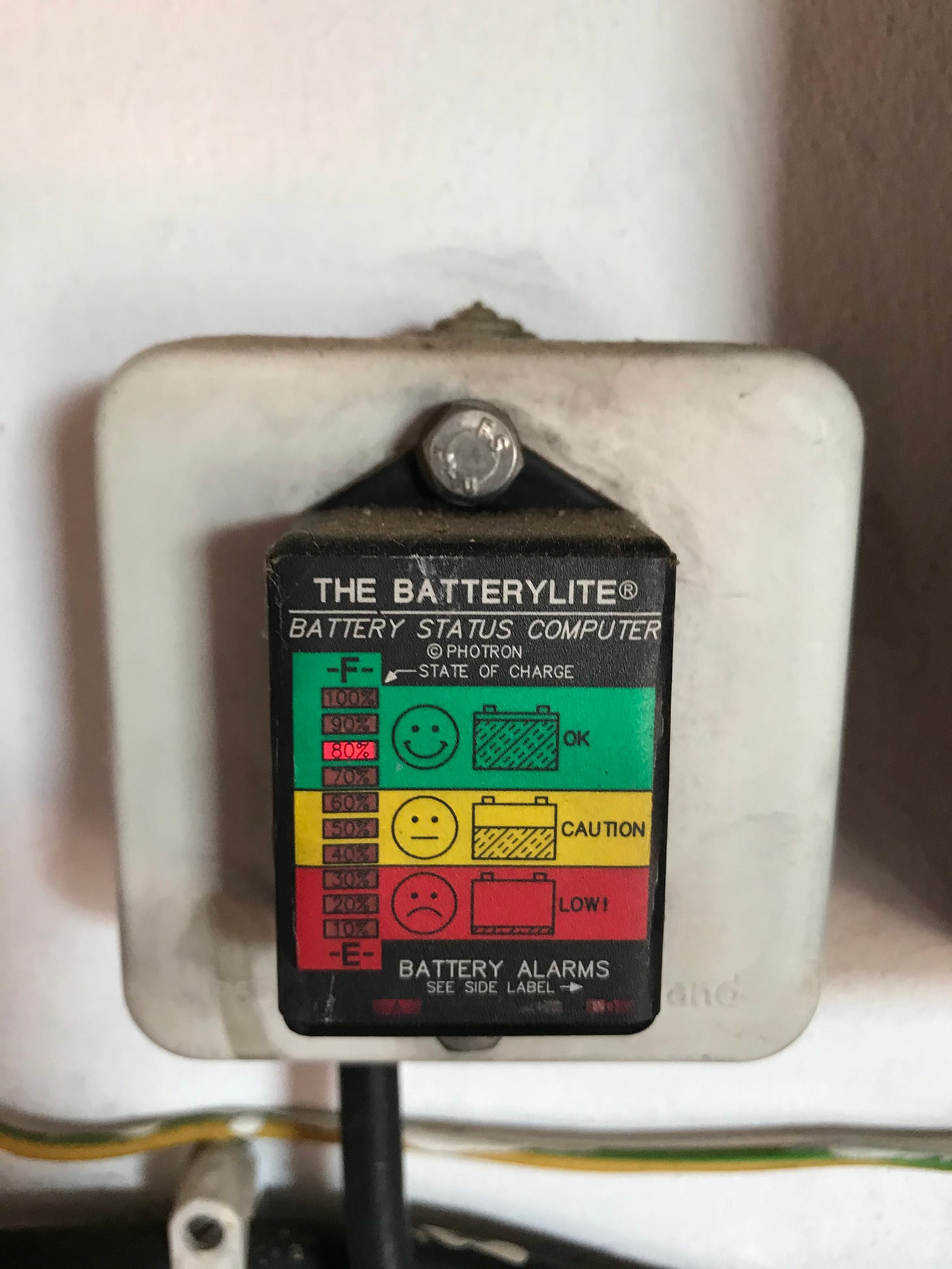
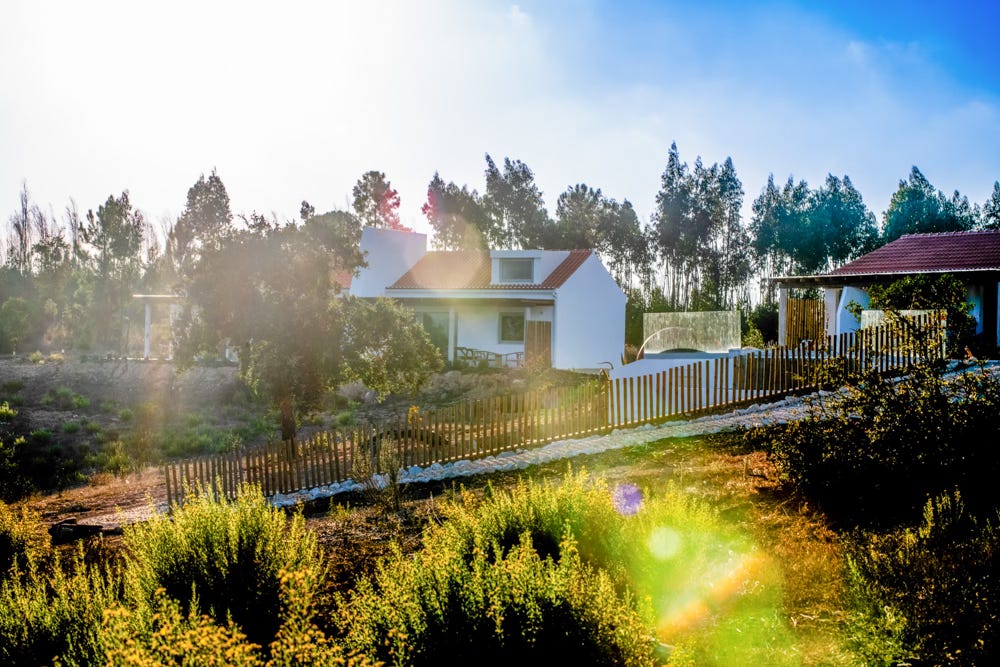

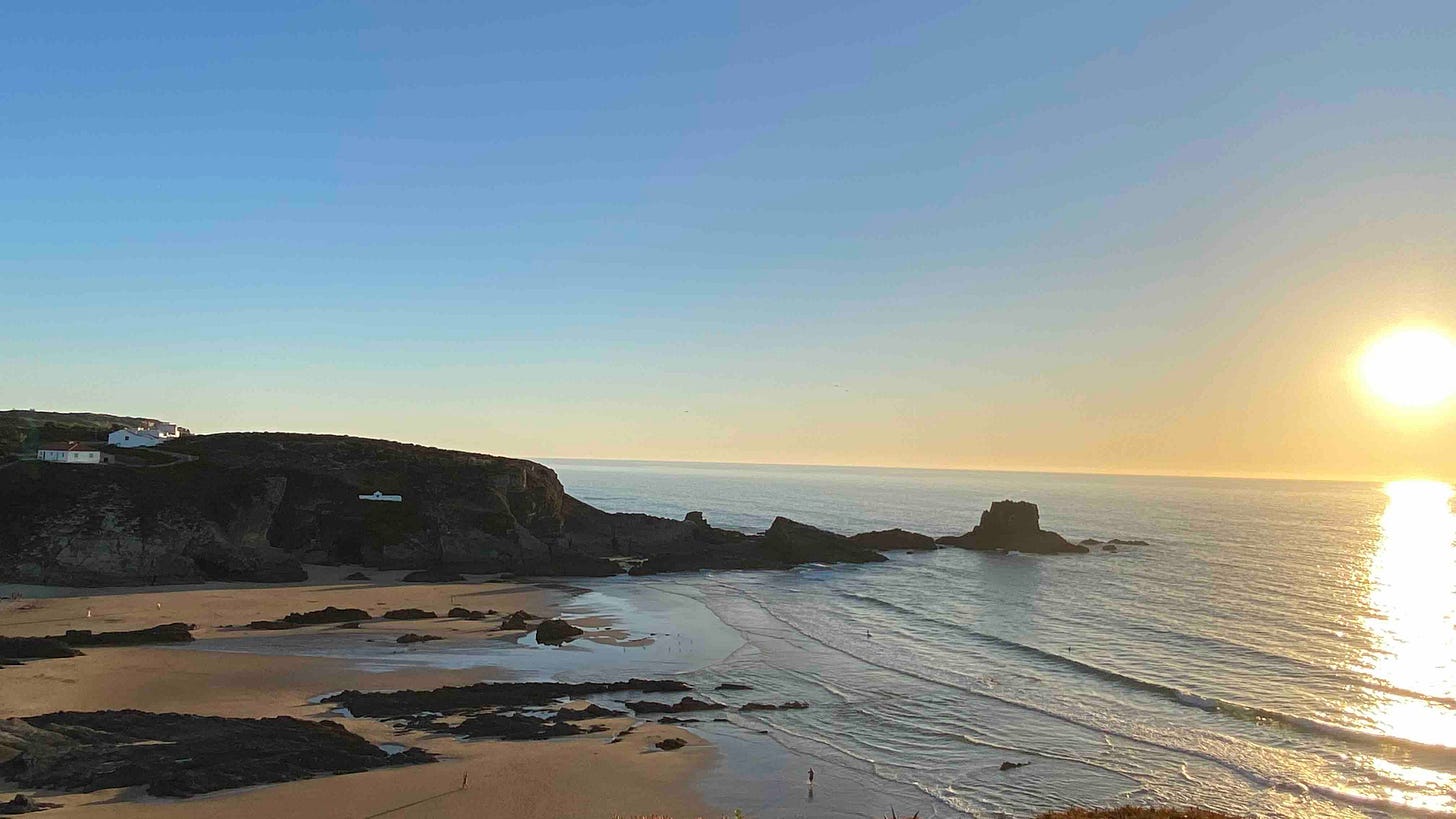

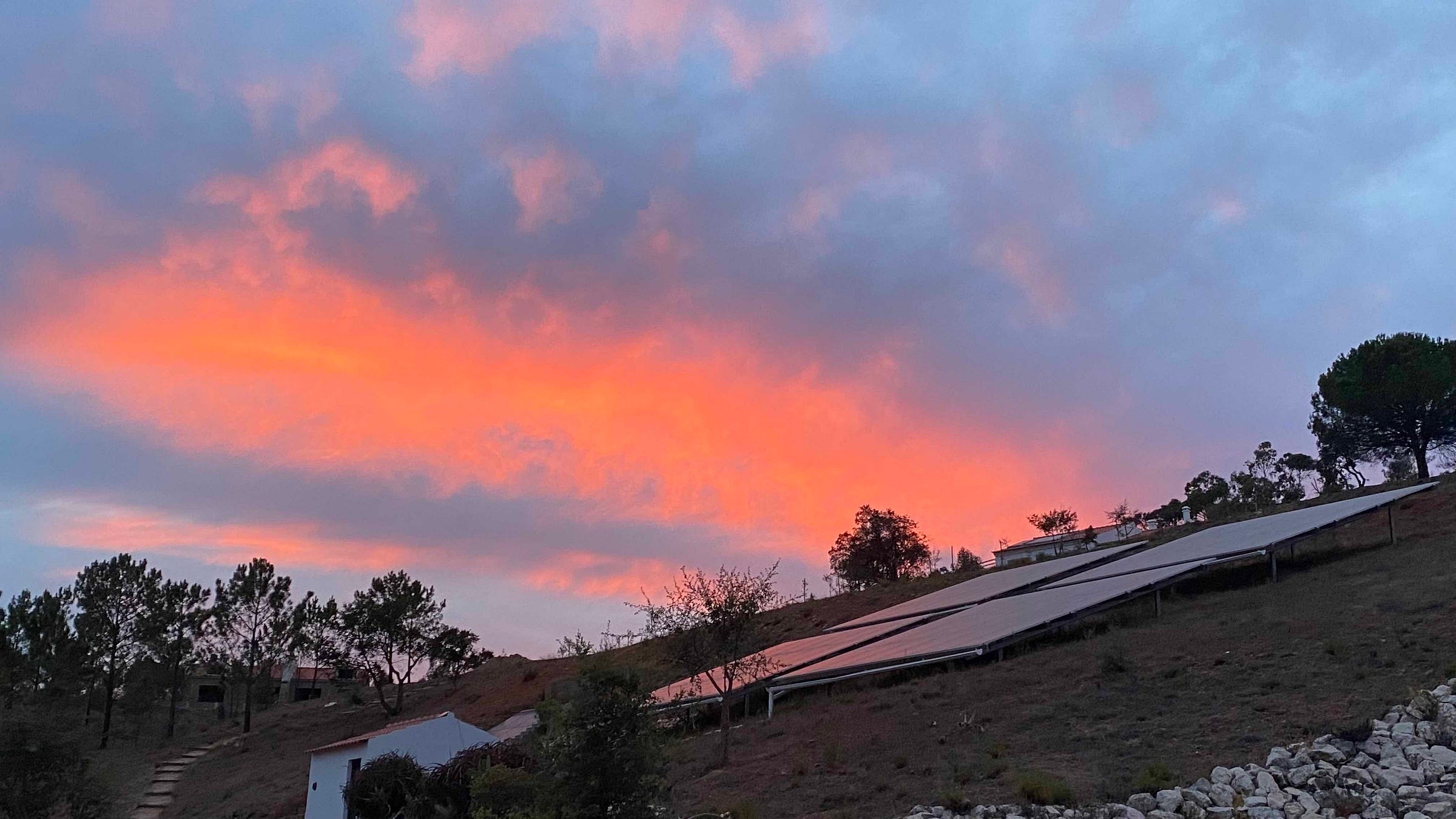
Hey Alastair
Very happy to hear that you guys sailed through yesterday sem problemas. I did wonder how your system was coping as I sat down to a dinner of queijo, pão and lukewarm vinho verde…
We were relatively lucky, power back on by 9.00pm, but a work day lost on the project 😳
Glad to hear it. That smugness was hard earned. Here we have learned the hard way that solar panels (and that nice Mr Musk's satellites) are no use in a crisis without a battery (and your friend is right, we should have been at the solar shop first thing this morning), but every day a lesson here.